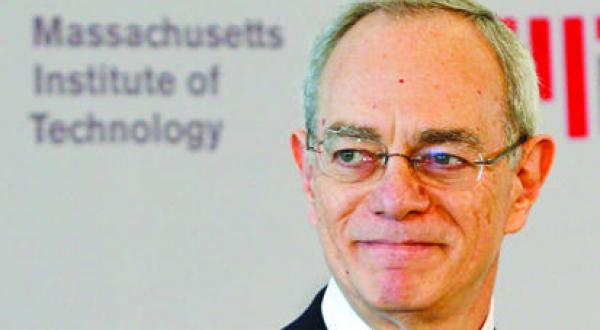On a recent trip to the Kingdom of Saudi Arabia, I was struck by the implications of this demographic fact: More than half of the Kingdom’s population is under the age of 25. At a time when many industrialized nations must contend with the shrinking and aging of their populations, Saudi Arabia is rich in youth, and this presents exciting opportunities for the Kingdom to shape its future through education.
My home institution, the Massachusetts Institute of Technology (MIT), was founded in the middle of the 19th century to seize a similar opportunity: the need to educate a new generation of makers and doers who would accelerate America’s industrial revolution.
Today, in a very different time, we are reimagining how MIT can best serve society now. We seek to answer a question that could be relevant to any institution of higher education: In the 21st century, what is the proper role of the research university, to do the most good for humanity?
The idea of the university is about 1,100 years old, and it is arguably an Arab invention, beginning with the founding of the University of Al-Qarawiyyin in the Moroccan city of Fez, and spreading outward from there.
For centuries, universities everywhere were focused on preserving knowledge and educating more scholars to serve in the university itself. In effect, they were about self-perpetuation. But over the last few centuries, that has gradually changed. Now, the modern research university is mostly about advancing knowledge and educating a wide range of students to play active and constructive roles in society.
MIT does those things, too. They are at the top of our mission statement. But our mission also commits us to “bring knowledge to bear on the world’s greatest challenges” and to do so for the “benefit of humankind.” And I have come to believe that this is the heart of what today’s research universities need to do. Universities need to see themselves as leaders not only in advancing knowledge and educating students, but in solving problems for their local regions and perhaps even for humanity as a whole.
Two excellent examples of MIT’s emphasis on problem-solving involve Saudi partners. Two years ago, Mohammed Abdul Latif Jameel chose to work with MIT to create the Abdul Latif Jameel World Water and Food Security Lab. This interdisciplinary research center works to accelerate development of real-world technology and policy solutions to urgent problems around the supply of fresh water and nourishing food, topics of tremendous importance in the Kingdom and the whole Middle East, and in many regions around the globe. And for the past ten years, the MIT Energy Initiative has pioneered the science, technology and policy necessary to enable a sustainable energy future for the world. In this work, Saudi Aramco has been a visionary partner.
Initiatives like these drive progress towards solutions by fostering new science, developing innovative technologies and spinning out start-up companies. What’s more, in terms of developing the next generation of talent, we find that an institutional focus on problem solving has at least three unexpected benefits.
First is in the classroom. When you frame the curriculum in terms of problem solving, students are automatically focused, engaged and energized. Second, when we focus on solving big challenges, it encourages bold interdisciplinary thinking. In effect, when your first loyalty is to solving the problem – not to your discipline, nor to the conventional wisdom – you are inspired to make new tools, seek out new partners and invent new technologies. And third, when students are working together for the higher goal of making a better world, it becomes very easy to overcome cultural biases and differences. The people of MIT come from 152 countries and many different backgrounds. But when they work on big problems together, they naturally come to respect and rely on each other as human beings.
In short, at MIT, we have found that a humane focus on solving great global problems allows us to achieve disproportionate positive impact, and to produce young leaders primed to help make a better world. In that spirit, I look forward to seeing how the Kingdom of Saudi Arabia builds its future by tapping its young people’s resourcefulness, creativity and capacity to solve hard problems.
* L. Rafael Reif has been president of MIT since July 2012.
